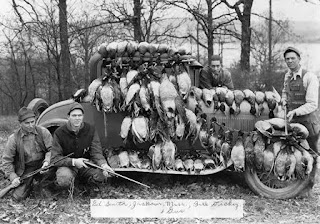

Bill Dickey was born in 1907 in Bastrop, Louisiana. His father John had played semipro ball, as had his older brother Gus. Bill followed suit with them into the world of baseball, with much more success. His younger brother Skeets would follow Bill to the majors, playing six years himself.
Dickey played on the hometown team as a teen, also starring on the high school team. After high school, he went to Little Rock college where he played football as well as baseball. Dickey signed with the Southern League's Little Rock team, which was unofficially affiliated with the Chicago White Sox. He was moved to the team in Jackson (Mississippi) in 1927 where he continued to produce. However, Jackson waived their rights to Dickey, and he wound up signing with the Yankees. Dickey's time in the Yankees' organization was short lived; he joined the Bronx Bombers in late 1928 at 21 years of age.
By spring of 1929, the Yankees had what they never had: a catcher. In 28 years of existence, the sporadically had catchers that were at best adequate, but for the most part expendable. Dickey started the tradition of great Yankee backstops that would include Yogi Berra, Elston Howard, Thurman Munson and Jorge Posada. He batted .324 in his rookie year of 1929, and would bat over .300 for the next 6 seasons. After a subpar 1935, he rebounded in 1936 to one of the best seasons a catcher on the junior circuit would ever have. He hit .362 with 22 home runs and knocked over 100 runs for the first of four straight seasons. He continued to be the Yankees every-day catcher until 1939. From 1929-1939, he batted .320 and slugged .510.
Dickey, now 33, accepted part-time duties in 1940, and shared catching duties through 1943. He then joined the military for World War 2. He returned to the Yankees in 1946 and played in 54 games, but also was named manager when Joe McCarthy resigned. He finished out the season as manager before.
After spending the 1947 season as a manager in the Southern League, he rejoined the Yankees as a coach, and was instrumental in developing Berra and Howard into the great players they were. He stayed on until 1958, when he left coaching and returned to Little Rock. He remained a scout for the Yankees and also worked at Stephens Inc. brokerage house as a securities representative. He finally retired for good in 1977. He was elected to Baseball's Hall of Fame in 1954, and had his number 8 retired by the Yankees, also worn by Yogi Berra. He was a regular at Yankee Old-Timers Day (You can see Bill at 0:36 and 0:47). He died in 1993 at 86.
For a while there, Dickey was the greatest catcher to ever play the game. Maybe that claim was buoyed by his uniform, but his shear dominance at that position through the 30's put him ahead of Hartnett, Lombardi, Bresnahan and even Cochrane. Since that time, we have had Berra, Bench, Fisk, Rodriguez.... and Dickey's name and feats begin to lose their relevance. Baseball sometimes has a fickle memory.
The Autograph: I was very surprised to get Dickey's autograph. Something I learned about autograph collecting as a kid: When it came to baseball players and their signing habits, Yankees were trickier than non-Yankees. I don't know if that is arrogance, or circumstance. But that is how my teen-aged mind profiled. Dickey signed my cards for me, and I was excited. I knew he had a reputation for not always accomodating requests, but he did for me each time I wrote.

No comments:
Post a Comment